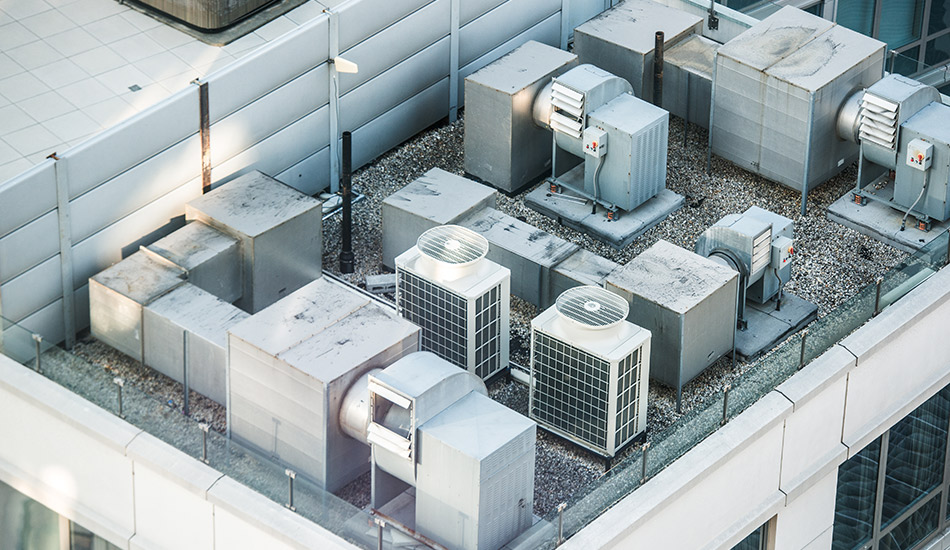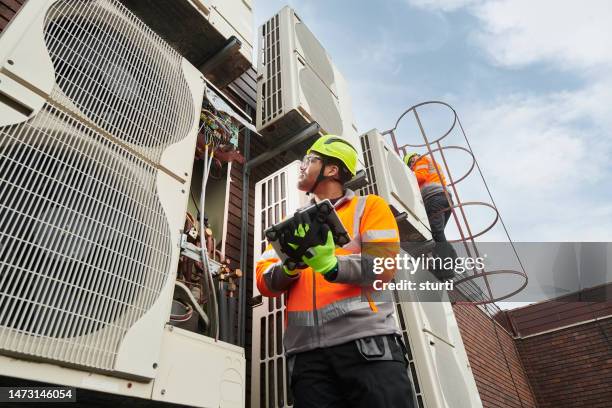Selecting In Between a Heatpump and Heater: Trick Factors To Consider for Your Heating And Cooling Demands
When evaluating heating choices for heating and cooling requires, the choice between a heatpump and a heater can be complicated. Each system provides distinct benefits tailored to particular climates and power efficiency objectives. Recognizing these distinctions is important for making an enlightened choice. Secret aspects such as installation prices and environmental impact better make complex the selection procedure. Which option absolutely lines up with one's comfort and sustainability choices? The following areas will check out these factors to consider carefully.
Understanding Warmth Pumps: How They Function and Their Benefits
While lots of property owners consider various heating choices, recognizing exactly how heat pumps function and their advantages can greatly influence their choice. Heat pumps run by moving heat instead of creating it. In the winter season, they remove heat from the outside air or ground and move it indoors, while in the summertime, they reverse this procedure, cooling the home by removing warmth outside. This dual performance makes them flexible for year-round climate control.One of the main benefits of heat pumps is their energy efficiency. They use substantially less power contrasted to typical heating unit, possibly causing reduced utility bills (furnace replacement). Furthermore, heatpump have a smaller carbon footprint, making them an eco-friendly option. They additionally require less maintenance than standard systems, contributing to long-term cost savings. In general, comprehending the auto mechanics and advantages of heatpump can assist house owners make notified choices regarding their heating and cooling needs
Exploring Furnaces: Types, Procedure, and Benefits
Heating systems are available in different types, including gas, electrical, and oil versions, each with unique operational mechanisms. Understanding these differences is crucial, as they impact effectiveness and home heating efficiency. Furthermore, furnaces use many benefits, such as consistent warmth outcome and dependability in colder environments.
Types of Heaters
Furnace can vary considerably in layout and procedure, with heating systems being a popular selection among homeowners. There are several sorts of heaters, each utilizing different gas resources and modern technologies. Gas heating systems prevail, leveraging all-natural gas to create warmth effectively. Electric furnaces, on the various other hand, utilize electrical resistance to generate heat, frequently preferred for their straightforward installment. Oil furnaces, while much less common, are efficient in areas with restricted gas access (ductless mini splits). Additionally, condensing heaters make best use of energy effectiveness by capturing and reusing exhaust gases. Each type runs through a system of warm exchangers and ductwork to disperse warm air throughout a home. Comprehending the differences between these heating system kinds is vital for educated HVAC decisions
Advantages of Heaters
For home owners looking for reliable warmth during chilly months, the advantages of heating systems are considerable. Heaters provide constant home heating, making certain also temperatures throughout the home. They are particularly efficient in severe chilly, usually exceeding heatpump in cold conditions. Various types, including gas, electric, and oil furnaces, provide versatility to satisfy varied demands and preferences.Furnaces additionally tend to have reduced preliminary installment prices contrasted to heatpump, making them an extra accessible option for many. Their robust layout contributes to a longer lifespan, with many units lasting over 15 years with proper maintenance. In addition, modern-day heaters are often furnished with advanced modern technology for enhanced performance, which can bring about reduced power bills. Overall, furnaces continue to be a reputable option for efficient home heating.

Power Efficiency: Comparing Warmth Pumps and Furnaces
When contrasting energy effectiveness in between heat pumps and heating systems, the Seasonal Power Performance Ratio (SEER) plays a necessary duty in identifying efficiency. Furthermore, a functional price evaluation reveals the long-term monetary effects of each system. Understanding these elements can assist homeowners in making informed decisions regarding their home heating remedies.
Seasonal Power Performance Proportion
Power efficiency plays a vital function in the decision-making procedure in between heatpump and heaters, specifically when taking into consideration the Seasonal Power Efficiency Ratio (SEER) This statistics steps the cooling performance of warmth pumps over an entire air conditioning period, giving a standard means to review efficiency. Higher SEER ratings indicate greater power performance, converting to reduced power usage and decreased utility bills. In comparison, heaters are usually evaluated using the Yearly Gas Utilization Efficiency (AFUE) rating, which reflects heating performance. When comparing these 2 systems, house owners must prioritize SEER scores for heatpump, as they straight influence total energy savings and environmental sustainability. A thorough understanding of SEER can especially affect the lasting contentment and cost-effectiveness of the picked cooling and heating remedy.
Functional Price Analysis
Understanding the operational prices connected with warmth pumps and furnaces is vital for home owners examining their options. Heatpump usually offer greater energy effectiveness, converting electrical energy into warm with marginal waste. This leads to reduced monthly utility bills, particularly in modest climates. Conversely, typical heating systems, especially gas models, may have reduced ahead of time expenses but can incur higher operational expenditures with time because of sustain costs and efficiency ratings.Moreover, heatpump can operate as both heating and cooling systems, potentially reducing the need for separate HVAC units. While first financial investments for heatpump might be greater, their long-term savings in power efficiency can make them a much more economical selection for many families. Careful analysis of neighborhood power rates is necessary to figure out the finest choice.
Installation Costs: What to Anticipate for Each Home Heating System
Installation costs for heating systems can vary significantly between heatpump and heating systems, affecting house owners' decisions. Heatpump normally have higher in advance setup costs, commonly varying from $3,500 to $8,000, relying on the device dimension and intricacy of installment. This includes the exterior unit, interior handling system, and necessary ductwork adjustments. Alternatively, furnaces have a tendency to have reduced preliminary prices, balancing in between $2,500 and $6,000, which can be appealing for budget-conscious house owners. However, installment expenses can enhance if comprehensive ductwork is required.Moreover, the choice of gas kind for furnaces-- gas, propane, or electrical-- can also impact setup prices. While heat pumps use power efficiency, their first investment might deter some buyers. Inevitably, reviewing installment prices alongside long-term cost savings and performance will assist home owners in making educated decisions about their heating unit.
Environment Factors To Consider: Which System Carries Out Better in Your Area
Exactly how do environment problems influence the effectiveness of heating unit? The performance of heatpump and heating systems can differ considerably depending upon the local environment. In modest climates, heatpump stand out by effectively transferring warmth from the outside air, making them an energy-saving option. Their efficiency diminishes in very cool temperature levels, where they may struggle to draw out adequate warm. On the other hand, furnaces, specifically gas designs, supply consistent and trusted warmth no matter of outside conditions, making them more suitable in colder regions.In locations that experience milder winters, heatpump can operate properly year-round, giving both cooling and heating. On the other hand, regions with extreme winters months frequently take advantage of the robustness of furnaces. Ultimately, understanding the local climate is essential when determining between a heat pump and a heating system, as it directly affects their operational performance and total efficiency.
Upkeep Demands: Long-Term Look After Warmth Pumps vs. Furnaces
While both warm pumps and furnaces call for normal upkeep to guarantee peak performance, their certain needs and care routines differ significantly. Heating systems typically require less constant interest, with yearly evaluations sufficing to examine for gas leaks, tidy filters, and assess general functionality. Their easier design usually permits straightforward repairs.In contrast, warmth pumps require semiannual maintenance because of their twin role in heating & cooling. This includes cleansing coils, checking refrigerant degrees, and making certain that both the indoor and outdoor units function at their best. In addition, heatpump upkeep typically entails more intricate elements, making specialist servicing essential.Neglecting upkeep can lead to lessened performance and raised energy costs for both systems. Inevitably, homeowners need to take into consideration these long-lasting treatment demands when picking between a warm pump and a heating system, as aggressive upkeep can extend the life official source expectancy and efficiency of either go now system substantially.
Environmental Effect: Picking a Lasting Home Heating Option
The environmental effect of heater is a critical assessment for house owners looking for sustainable alternatives. Heatpump are generally much more energy-efficient than typical furnaces, as they move heat instead than create it, significantly minimizing carbon discharges. By making use of renewable resource resources, such as air-source or geothermal heatpump, homeowners can further reduce their eco-friendly footprint.On the various other hand, natural gas heating systems produce greenhouse gases and add to air pollution, though they often supply greater warm result. Innovations in modern technology have led to the development of high-efficiency heating systems that reduce emissions.Ultimately, picking a home heating system involves considering efficiency versus environmental influence. House owners are urged to mirror on local power sources and incentives for renewable systems, making sure a choice that lines up with both personal comfort and ecological obligation. The decision impacts not only prompt convenience yet also lasting sustainability and environmental health and wellness.
Often Asked Inquiries
How Much Time Do Warm Pumps and Furnaces Usually Last?
The life-span of heatpump generally ranges from 15 to twenty years, while heaters can last in between 15 to thirty years. Normal upkeep considerably affects their durability and effectiveness in providing home heating services.
Can I Utilize a Warm Pump in Extremely Cold Climates?
Warm pumps can run in exceptionally chilly climates, but their effectiveness diminishes as temperatures decrease. In such conditions, supplementary heating resources might be necessary to maintain comfortable indoor temperature levels and assure peak performance.

What Is the Noise Degree of Warm Pumps Versus Furnaces?
The noise degrees of heatpump and heaters differ substantially. Usually, heatpump operate more quietly than traditional heaters, making them better for those conscious appear, while heating systems may create louder operational sounds during home heating cycles.
Are Warmth Pumps Suitable for Both Home Heating and Air conditioning?
Warm pumps are without a doubt suitable for both cooling and heating (heat pump installation ooltewah tn). They operate by moving heat, supplying effective temperature level control year-round, making them a flexible option for house owners seeking an all-in-one cooling and heating option
What Size Furnace Do I Required for My Home?
Establishing the suitable dimension furnace for a home needs evaluating variables such as square footage, insulation top quality, regional environment, and the home's design. Consulting a specialist can guarantee a precise analysis and optimal convenience. Warmth pumps commonly offer higher power performance, transforming electric energy right into warmth with marginal waste. In modest climates, heat pumps excel by effectively transferring warm from the outdoors air, making them an energy-saving option. On the other hand, heaters, particularly gas models, offer trusted and consistent warm no matter of outside conditions, making them more suitable in cooler regions.In areas that experience milder winter seasons, warmth pumps can run effectively year-round, offering both heating and cooling. Heat pumps are generally more energy-efficient than traditional furnaces, as they transfer warmth instead than create it, substantially lowering carbon exhausts. By making use of eco-friendly power resources, such as air-source or geothermal warm pumps, house owners can additionally decrease their eco-friendly footprint.On the other hand, natural gas get more furnaces give off greenhouse gases and contribute to air contamination, though they usually provide greater warm output.